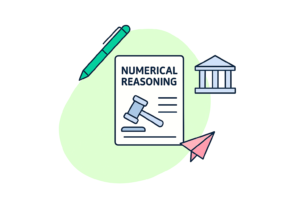Translation-based questions in the judiciary mains exam are not just linguistic puzzles, they are a test of your legal acumen, clarity of thought, and fluency in both legal terminology and native language articulation. Sounds intense?
It is. But with the right mindset and strategy, this paper can be your biggest scoring opportunity.
Read Legislative Drafts in Vernacular: Sharpen Your Legal Lens

Most translation-based questions are picked directly from vernacular legislative texts.
🔹 Why it matters:
- If you only read English versions, you’re missing vital nuances.
- Legislative intent, tone, and structure vary between versions, grasping this improves both your translation accuracy and your judicial understanding.
Start here: Read the Constitution or CrPC in your native language. You’ll be surprised how much it sharpens your interpretation skills.
Practice Daily, Progress Daily
Translation isn’t a subject you cram for. It’s a skill, and like all skills, it grows with consistent effort.
🔹 What to do:
- Dedicate 15–30 minutes daily to translating passages
- Switch between vernacular to English and English to vernacular
- Focus on tone, legal accuracy, and context
Think of this as a legal mental gym, every rep makes you stronger.
Write. Review. Repeat.
The key to mastering translation?
- Write regularly
- Review your translations critically
- Repeat with feedback or improvement
The more iterations you do, the more precision and fluency you gain.
Guess Smart: Context is King
Stumble upon an unfamiliar word? Don’t panic.
🔹 Here’s what to do:
- Use contextual clues from the surrounding text
- Think like a judge, not a translator
- Ask: What is this section conveying? What tone and intent fits here?
Choose clarity and legal precision over literary beauty.
Build Your Vernacular Vocabulary
Want translations to feel effortless? You need a rich vernacular vocabulary.
🔹 Build it by reading:
- Legal literature in your native language
- Local newspapers and editorials
- Law blogs and journals in regional language
More exposure = Faster comprehension = Better translation It’s like installing a legal-language translator in your brain, but one that’s 100% accurate and court-ready.
The Vernacular Paper: A Make-or-Break Moment

Let’s be honest; this paper can swing your entire result. But here’s the opportunity: if you ace it, you’re not just scoring well; you’re demonstrating that you’re ready to serve on the bench.
🔹 Why it matters in your judicial career:
- Real-life courtrooms involve litigants from diverse linguistic backgrounds
- Understanding and translating law isn’t optional; it’s daily reality
- Your grasp over language reflects your ability to uphold justice for all
Translation paper isn’t just an exam, it’s a preview of your judicial future.
Edzorb Has Your Back: Smart Tools for Smarter Prep
Translation may feel overwhelming, but not when you have the right tools.
At Edzorb Law, we offer:
- Tailored translation courses
- Real exam-like practice sets
- Legal vocabulary boosters
- Step-by-step strategies for accuracy and confidence
Let us help you turn this section from stumbling block to stepping stone.
Bonus Tip: Start Today with a Daily Mantra
Here’s a powerful way to stay consistent: Print out a daily translation challenge and stick it on your wall. Make it your morning mantra. Each day, each line, brings you closer to the black robe.
Final Thoughts: Turn Pressure into Power
Translation is not about perfection, about clarity, consistency, and context. So take a deep breath. Pick up your vernacular text. And begin. Because the judiciary mains exam doesn’t just test what you know.
It tests who you are becoming.
And if you’re reading this?
You’re already on the path to becoming a judge who understands justice in every language.

 Podcast
Podcast








 Features
Features






